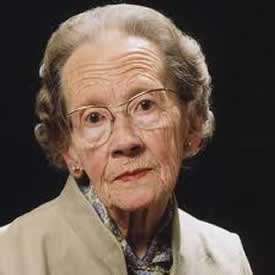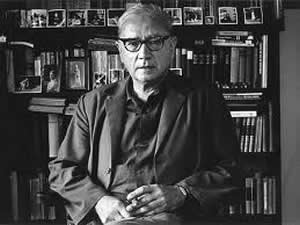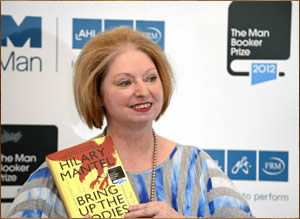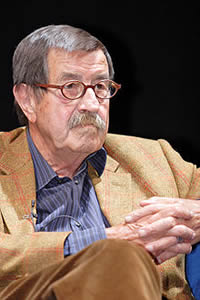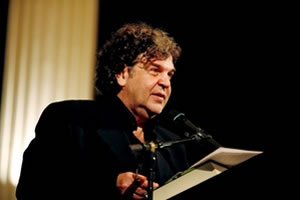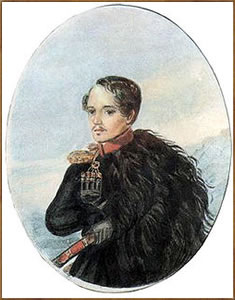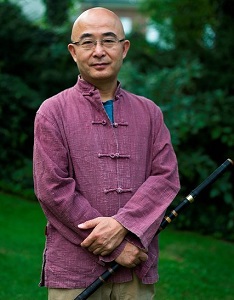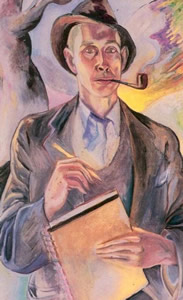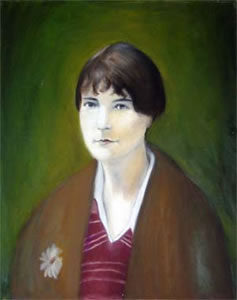De Duitse dichter en schrijver Heinrich von Kleist werd geboren op 18 oktober 1777 in Frankfurt an der Oder. Zie ook alle tags voor Heinrich von Kleist op dit blog.
Uit: Michael Kohlhaas
“Er ritt einst, mit einer Koppel junger Pferde, wohlgenährt alle und glänzend, ins Ausland, und überschlug eben, wie er den Gewinst, den er auf den Märkten damit zu machen hoffte, anlegen wolle: teils, nach Art guter Wirte, auf neuen Gewinst, teils aber auch auf den Genuß der Gegenwart: als er an die Elbe kam, und bei einer stattlichen Ritterburg, auf sächsischem Gebiete, einen Schlagbaum traf, den er sonst auf diesem Wege nicht gefunden hatte. Er hielt, in einem Augenblick, da eben der Regen heftig stürmte, mit den Pferden still, und rief den Schlagwärter, der auch bald darauf, mit einem grämlichen Gesicht, aus dem Fenster sah. Der Roßhändler sagte, daß er ihm öffnen solle. Was gibts hier Neues? fragte er, da der Zöllner, nach einer geraumen Zeit, aus dem Hause trat. Landesherrliches Privilegium, antwortete dieser, indem er aufschloß: dem Junker Wenzel von Tronka verliehen. – So, sagte Kohlhaas. Wenzel heißt der Junker? und sah sich das Schloß an, das mit glänzenden Zinnen über das Feld blickte. Ist der alte Herr tot? – Am Schlagfluß gestorben, erwiderte der Zöllner, indem er den Baum in die Höhe ließ. – Hm! Schade! versetzte Kohlhaas. Ein würdiger alter Herr, der seine Freude am Verkehr der Menschen hatte, Handel und Wandel, wo er nur vermochte, forthalf, und einen Steindamm einst bauen ließ, weil mir eine Stute, draußen, wo der Weg ins Dorf geht, das Bein gebrochen. Nun! Was bin ich schuldig? – fragte er; und holte die Groschen, die der Zollwärter verlangte, mühselig unter dem im Winde flatternden Mantel hervor. »Ja, Alter«, setzte er noch hinzu, da dieser: hurtig! hurtig! murmelte, und über die Witterung fluchte: »wenn der Baum im Walde stehen geblieben wäre, wärs besser gewesen, für mich und Euch«; und damit gab er ihm das Geld und wollte reiten. Er war aber noch kaum unter den Schlagbaum gekommen, als eine neue Stimme schon: halt dort, der Roßkamm! hinter ihm vom Turm erscholl, und er den Burgvogt ein Fenster zuwerfen und zu ihm herabeilen sah. Nun, was gibts Neues? fragte Kohlhaas bei sich selbst, und hielt mit den Pferden an. Der Burgvogt, indem er sich noch eine Weste über seinen weitläufigen Leib zuknüpfte, kam, und fragte, schief gegen die Witterung gestellt, nach dem Paßschein. – Kohlhaas fragte: der Paßschein? Er sagte ein wenig betreten, daß er, soviel er wisse, keinen habe; daß man ihm aber nur beschreiben möchte, was dies für ein Ding des Herrn sei: so werde er vielleicht zufälligerweise damit versehen sein.”
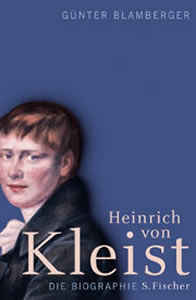
Heinrich von Kleist (18 oktober 1777 – 21 november 1811)
Cover
Lees verder “Heinrich von Kleist, Rick Moody, Raymond Brulez, Kees Fens, Jan Erik Vold”

